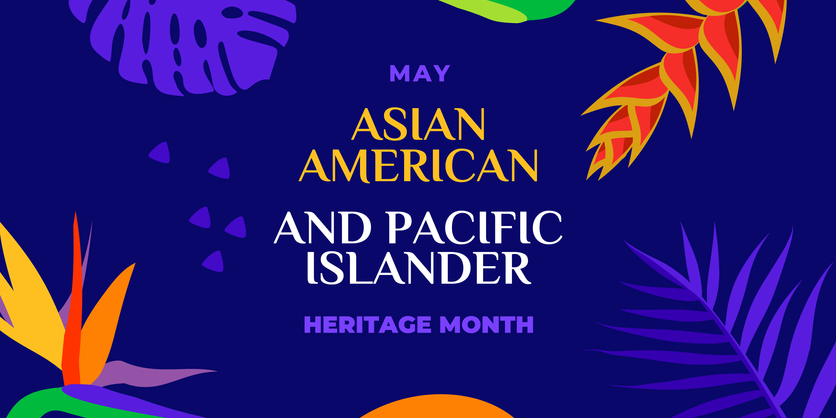Understanding Warning Signs of Mental Illness in the AAPI Community

In the Asian American Pacific Islander (AAPI) community, mental illness warning signs can be difficult to identify because of stigma and lack of culturally competent care. These barriers can make it difficult for people to seek out help. AAPIs are less likely than other racial/ethnic groups to seek help for mental health conditions. In 2019, only 23% of AAPI adults with a mental illness received treatment.
The AAPI community is extremely diverse in language, religion, cultural practice, and colonial history and it is the fastest-growing racial/ethnic minority group.
It is important to learn about the warning signs of mental illness because early intervention can help reduce the severity of mental illness and it may be possible to delay or prevent the illness altogether. Mental illnesses often do not appear suddenly. Usually, family members, friends, teachers, or individuals themselves recognize small changes in their thinking, feelings, or behavior.

Some common warning signs of mental illness
- Dramatic sleep or appetite changes.
- Dramatic shifts in emotions.
- Recent social withdrawal and loss of interest in activities previously enjoyed.
- Problems with concentration, memory, or logical thought and speech.
What should we be aware of when looking for warning signs?
While the label of AAPI represents a great diversity of people, origins and experiences, here are a few things to consider in relation to mental health warning signs in the AAPI community.
- Potential trauma from forced displacement or immigration.
Refugees and other people affected by conflict are at greater risk of mental health problems. They are reported to have a 15-30% prevalence of PTSD and depression compared to less than 4% prevalence of PTSD among non-refugee populations. - Physical symptoms that could be caused by mental illness, such as stomach pains.
Often, AAPIs present with physical symptoms in primary care. However, they may identify warning signs for mental illness when asked directly by the health care professional. - Effect of the model minority myth on Asian American students.
The model minority myth refers to the perception that Asian Americans are driven and successful and do not need social programs or support. Students may be resented and isolated by their peers because of this stereotype. At the same time, they may also feel that they are not able to meet the standards that the stereotype creates. Research has found that Asian Americans who endorsed this myth had higher levels of psychological distress. - Incidences of racism and hate crimes, particularly in response to the COVID-19 pandemic.
Recently, AAPIs have faced a 150% increase in anti-Asian hate crimes. Individuals who have faced COVID-19-related racial discrimination may experience greater odds of depression, anxiety, binge drinking, non-suicidal self-injury, and suicidal ideation.
By gaining a deeper understanding of the AAPI community, friends, family, and health professionals can identify warning signs for mental illness more easily and ask more targeted questions.
Learn More
For General Public: Learn more about why AAPIs don’t go to therapy and reach out to mental health clinicians for the AAPI community in your area if you need mental health support or believe you are seeing or experiencing warning signs of mental illness.
For Mental Health Clinicians: See APA’s Stress & Trauma Toolkit for Treating Asian Americans in a Changing Political and Social Environment.
by Chandra Chea,
Senior Program Manager,
American Psychiatric Association
References
- Anxiety and Depression Association of America. (2018).Asian Americans/Pacific Islanders. https://adaa.org/find-help/by-demographics/asian-pacific-islanders#Additional%20Support%20and%20Resources%20from%20the%20ADAA%20Community
- Huang, E. R., & Hall, G. C. N. (2020). The Invisibility of Asian Americans in the United States: Impact on Mental and Physical Health. Prejudice, Stigma, Privilege, and Oppression, 91–106. https://doi.org/10.1007/978-3-030-35517-3_6
- National Alliance on Mental Illness. (2019).Why Asian-Americans and Pacific Islanders Don’t go to Therapy. Nami.org. https://www.nami.org/Blogs/NAMI-Blog/July-2019/Why-Asian-Americans-and-Pacific-Islanders-Don-t-go-to-Therapy
- SAMHSA. (2019, September 11).2019 NSDUH Detailed Tables. Samhsa.gov. https://www.samhsa.gov/data/report/2019-nsduh-detailed-tables
- Song, S. (2021). Immigrant and Refugee Mental Health (presentation). American Psychiatric Association. https://www.youtube.com/watch?v=cKvR7au-VmA
- Yeung, A., Chang, D., Gresham, R. L., Nierenberg, A. A., & Fava, M. (2004). Illness Beliefs of Depressed Chinese American Patients in Primary Care.Journal of Nervous & Mental Disease,192(4), 324–327. https://doi.org/10.1097/01.nmd.0000120892.96624.00
- Zhou, S., Banawa, R., & Oh, H. (2021). The Mental Health Impact of COVID-19 Racial and Ethnic Discrimination Against Asian American and Pacific Islanders. Frontiers in psychiatry, 12, 708426. https://doi.org/10.3389/fpsyt.2021.708426
